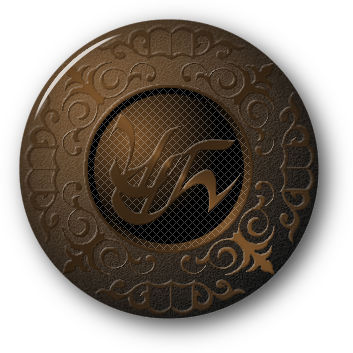

|
|
Articles are the small words that let us indicate or "point to" a specific noun. In many ways, D'ni articles are like the adjectives we discussed in the last chapter: they describe nouns, and they do not need to change in order to agree in number. Definite and Indefinite Articles English has three articles: a, an, and the. The first two, a and an, are called indefinite articles because, even while they "point to" a noun and distinguish it from the abstract, they do not identify a definite instance of that noun. A rock could be this rock on the ground, or that rock on the mountain, or that rock in the cave. Since we're just talking about a rock in general, it could be any of these rocks in front of us, it is indefinite which rock we mean. The rock, however, doesn't leave the question "Which rock?" unanswered — I am referring to a single rock, one that can be identified, since it is "the" rock. For this reason, the is called a definite article; it refers to a definite thing, while an indefinite article could refer to any number of things. Note that a and an are not separate articles, if this lesson seems to imply it. They are variatons of the same indefinite article. A is used before words that begin with a consonent, and an is used before words that begin with a vowel. Articles in D'ni D'ni has only two articles, one definite: re (re), and one indefinite: erT (erth). What's unique about D'ni articles is that, like adjectives, they can be used for both singular and plural nouns without changing to agree. For example, we can say repråD (repråd) or repråDtE (reprådtē), the same way we can say the rock or the rocks in English. Similarly, we can say erTpråD (erthpråd) or erTpråDtE (erthprådtē) in D'ni; however, we can't use the same indefinite article a for both in English. We certainly can say a rock in the singular, but we cannot say a rocks. This is because there is no indefinite article in English for plural nouns; the closest equivalent expression in English would be some rocks. Notice as well that an article is attached to the front of the noun it describes. Whether singular or plural, modified with an adjective or standing by itself, the article will always be a prefix. Examples: Rarely, re- (re-) is contracted into a shorter form, r' (r'), most often when the first letter of the noun it modifies is a vowel, especially e. The apostrophe lets us know that letters are missing and also helps clarify ambiguity. When we see r'erem (r'erem), we know that re has been contracted, and, especially since the first letter following the apostrophe is e, that the noun is erem (erem). If the apostrophe were absent, as in rerem (rerem), it would seem that re (re) modifies the word rem (rem), which is incorrect. This said, it pays to be cautious when reading D'ni texts, as sometimes the apostrophe is left out of the contraction, at which time we must rely on vocabulary and context to see us through. (Site master note: The ' represents a glottal stop; that is, a pause in breath. So r'erem is pronounced as two distinct words, while rerem is one word.) |
Myst, the Myst logo, and all games and books in the Myst series are registered trademarks and copyrights of Cyan Worlds, Inc. Myst Online: Uru Live is the sole property of Cyan Worlds Inc. The concepts, settings, characters, art, and situations of the Myst series of games and books are copyright Cyan Worlds, Inc. with all rights reserved. I make no claims to any such rights or to the intellectual properties of Cyan Worlds; nor do I intend to profit financially from their work. This web site is a fan work, and is meant solely for the amusement of myself and other fans of the Myst series of games and books. |